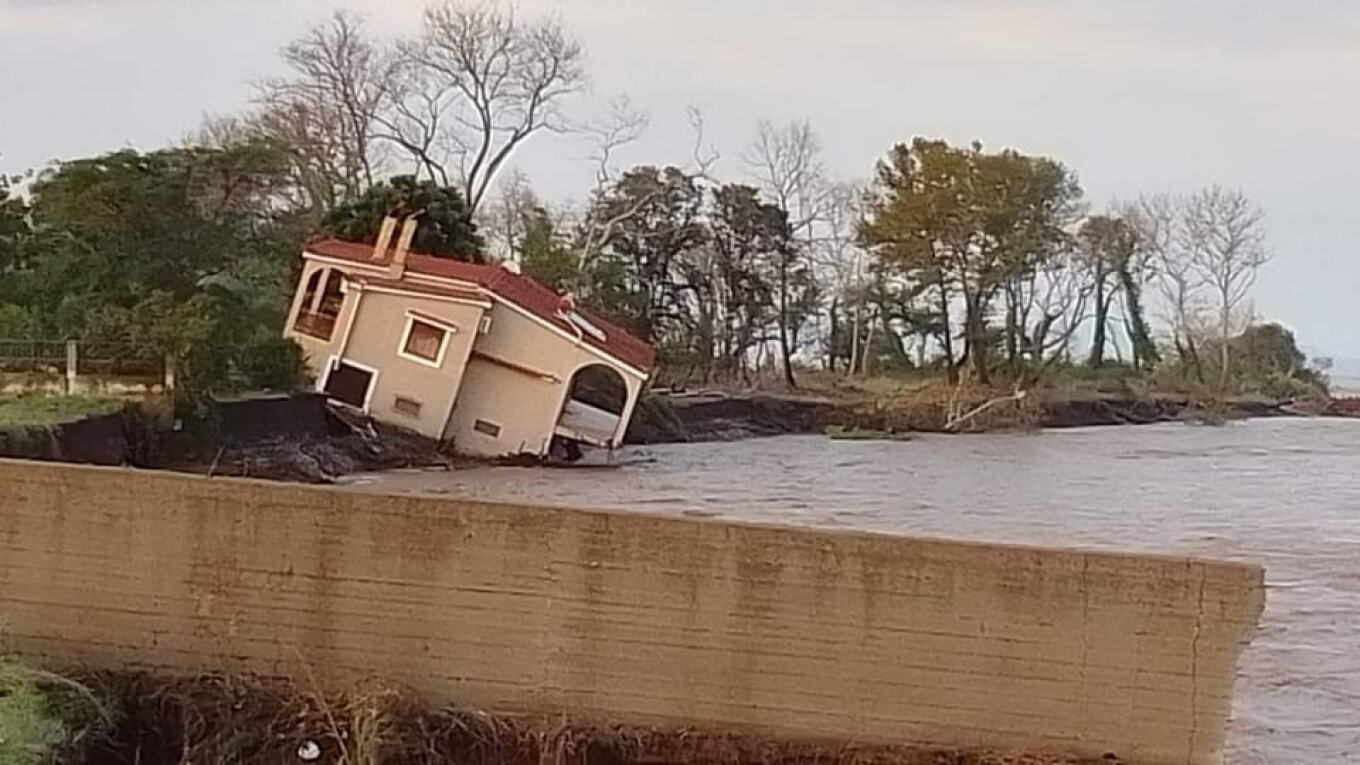The residents of Volos are in despair following the passing of storm Elias, the second devastating natural disaster in twenty days, which hit the wider region of Volos, as they are trying to recover and assess the catastrophic impact of the natural phenomenon.
With accumulated problems from flooding, mud, and damaged infrastructure, thousands of people in the city and its suburbs are facing enormous problems, including a lack of drinking water in the urban complex, despite the efforts made by the crews of DEYA Greater Volos and EYDAP, which is assisting in order to restore, even partially, the city’s water supply.
During the night small quantities of water were able to reach some areas, but without pressure, but at first light the water supply was again interrupted.
For his part, the mayor of Volos Achilleas Beos in his statements said that “if the city is powered up we will manage to put in operation aqueducts that will give water to parts of Volos and Nea Ionia. But we will need about 10 days for the total restoration. Unfortunately, what we managed to create after Daniel was destroyed by the Elias storm and we are starting all over again.”
Most of the city of Volos has been powered up, with dozens of PPC crews working around the clock, but suburbs of Volos and villages in Pelion, where the network was completely destroyed by falling PPC poles, still remain without electricity.
In the city of Volos and in the suburbs of Agria and Alykes, residents are trying to recover from the sweeping flood that destroyed houses, businesses, cars, and everything else in the area, while entire districts are again mired in mud from the disaster that hit the prefecture for the second time.
“Nothing is left standing”
“In 20 days I was destroyed twice. Nothing is left standing. The water got into the house, we filled up with mud and everything I saved last time is now broken. Our lives have changed. We have nowhere to sleep,” a Volos resident tells thenewspaper.gr with tears in her eyes.
Her house was flooded by Wednesday’s devastating bad weather. She confesses that she has never been as scared in her life since that night. “We thought we were going to drown. You’ve never seen anything like it. The water came rushing in and smashed everything. What a disaster that was,” she adds.
The scenes are similar in most homes. Walls stained at the height of the rushing waters, the smell of mould everywhere. “We don’t have the courage to save anything anymore. Twenty days we were fixing the house and suddenly now we have to do it all over again. With what money? They have to give us compensation immediately. Tomorrow morning. We have to buy new appliances, food to eat, a bed to sleep in,” says another homeowner who was abandoned to the raging waters.
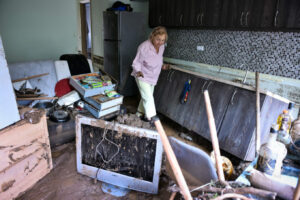
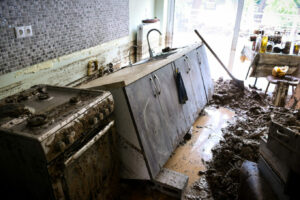
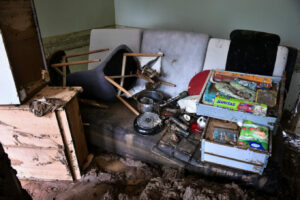
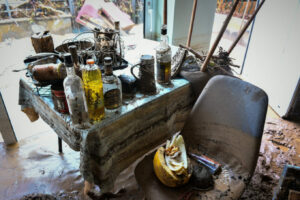
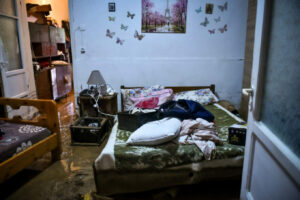
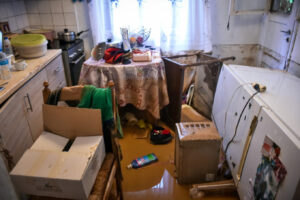
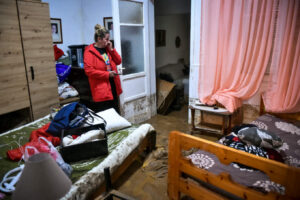
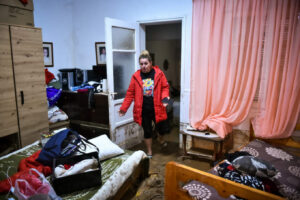
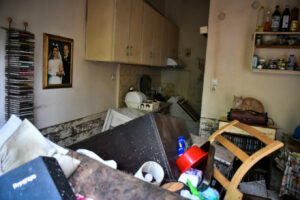
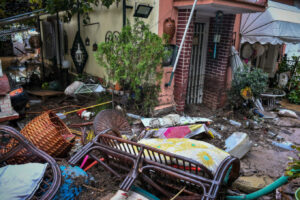
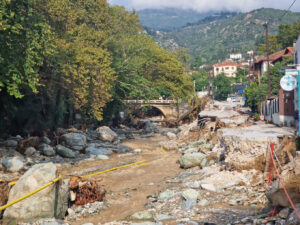
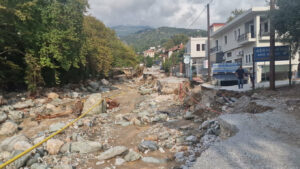
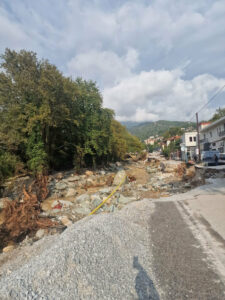
The situation in Evia is also disheartening, as the destruction recorded in the much-affected north part of the region after the sweeping passage of Elias is widespread. Many areas remain without power and water after the damage caused to the network by the overflowing torrents. The colour of the sea has been changed by the mud coming down from the mountains, roads have disappeared, houses and businesses have been drowned in muddy waters, while debris from burnt forests is causing serious problems in villages, several of which have been closed off, such as Gouves.
Ask me anything
Explore related questions
